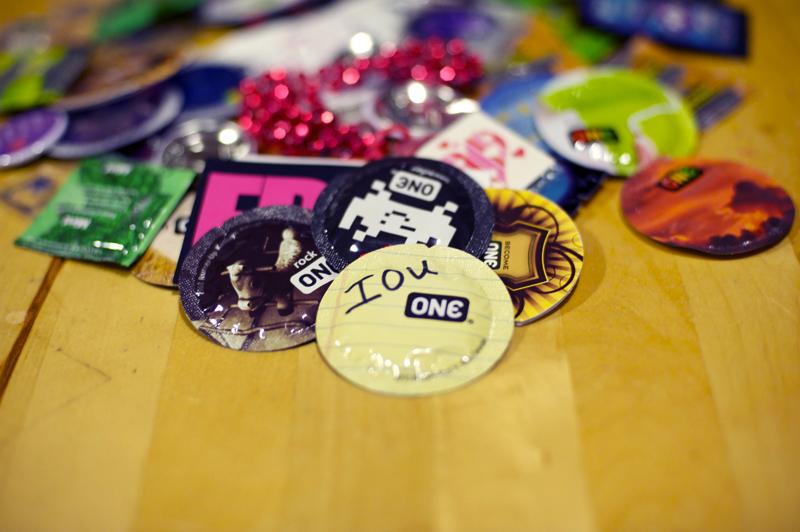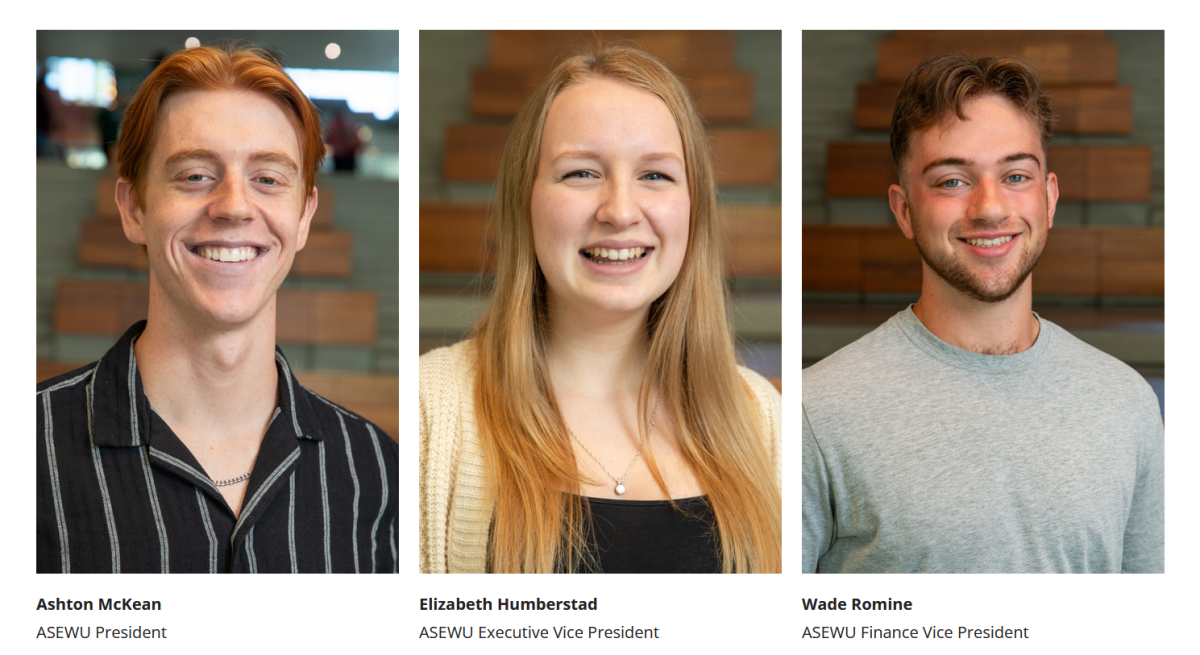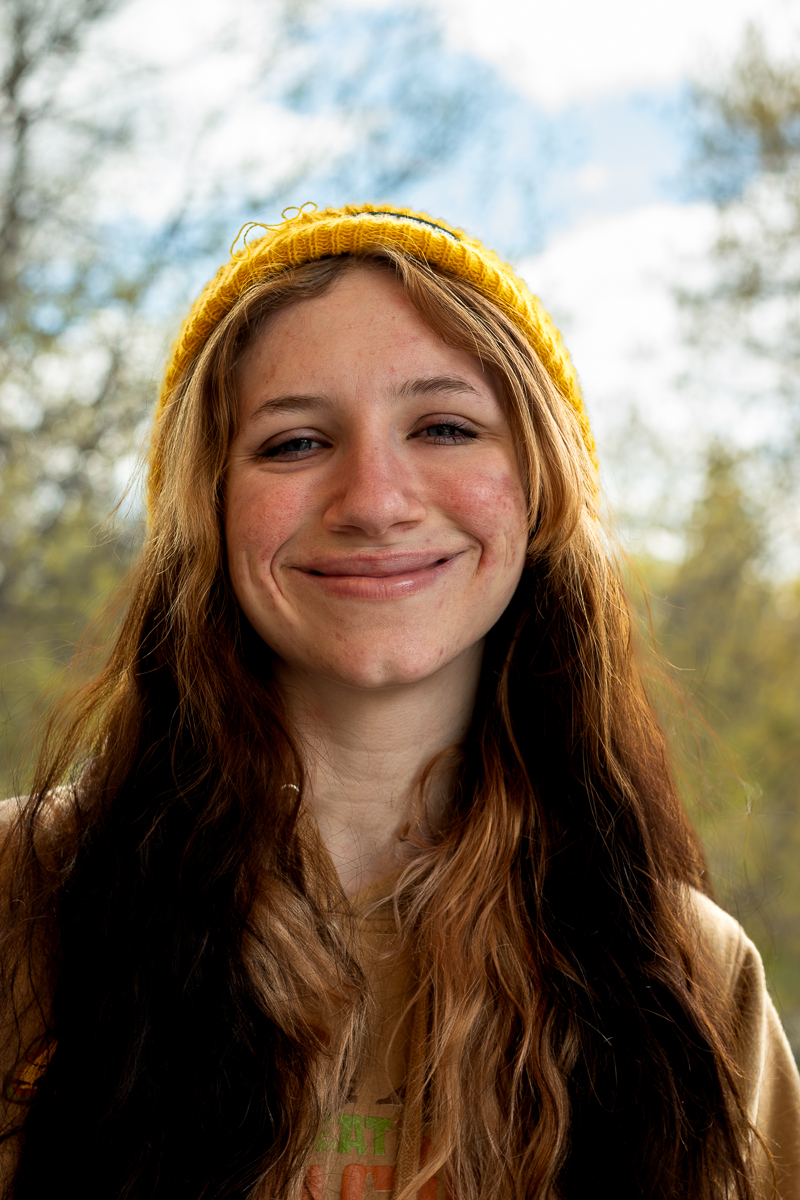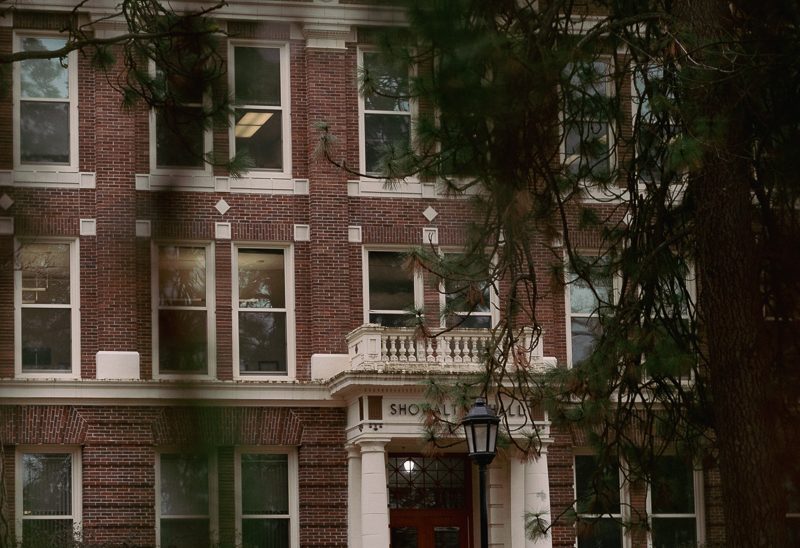
Photo Jade Raymond
“This is a really fun way for students to learn about something that they would normally be afraid to ask,” said Lori Hayes, director of Condom-Mania. “There’s no judging, [students] are comfortable and they don’t even have to participate, they can just listen.”
This year’s event offered over 12 different games and prize booths to all participants which revolved around proper sexual etiquette. Prizes ranged from Mardi Gras beads with a condom at the end to safe sex packages supplied by Lover’s.
One booth that stood out to students like Brianna Cooper was “How to put on a Condom,” which detailed the 11 steps to putting on a condom. Upon completion, the advisers would correct any mistakes and explain why that correction was made.
“I got the order completely mixed up,” said Cooper. “I thought I knew the correct order, but I was wrong. It goes to show that people just don’t check out the proper ways to do that.”
Each booth had at least one adviser to discuss issues and concerns, as well as to interact with students. Every 30 minutes or so, the advisers would switch to different stations to give them a wider variety of experience.
“[Students] seem very engaged and interested in learning about sexual health,” said Tanya Jones, an adviser for Condom-Mania. “I think that the games are a really good way for them to learn about it in a non-intimidating environment.”
Jacqueline Alonso has worked with Condom-Mania for two years now, and feels that this is one of the best ways to teach college students about sexual awareness.
“This is a fun way to interact with students,” said Alonso. “We do one-minute clinics, and I feel like, when it’s just education wise, they’re not really engaged. Whereas here, they’re winning prizes, they’re with their friends, they’re playing games. Students are getting something out of this.”
According to the Health and Wellness Prevention Services, between 80 and 90 percent of condom problems are human error, due to a number of reasons such as not checking the expiration date, not looking for rips or tears or simply not applying it properly.
“In high school, they teach you the basics of sexual education,” said Tanya Bockmir. “But in college, they teach you how to be fully aware of what it means and give you the steps to make sure you’re ready for the real world.”
While the general attitude of students attending Condom-Mania was upbeat and positive, Hayes said that she met a few people who were against the actions the advisers were taking. She says this happens all the time.
“Their belief was that they thought it should be abstinence only,” said Hayes. “Or wait until marriage. So we tried to do a little bit of both for everybody.”
This led Hayes to create the “How to make love without doing it” booth, in which students are allowed to write down their ideas for dates, and how to show your significant other that you love them without getting physical. Some of these ideas included motorcycling through the mountains, a campfire on the beach and laser tag.
“I think [Condom-Mania] provides a positive opportunity to talk to students in their language,” said Bockmir. “To build a bridge of communication, so that if a need arises, they know that we are here for them, and that we can answer those questions.”













